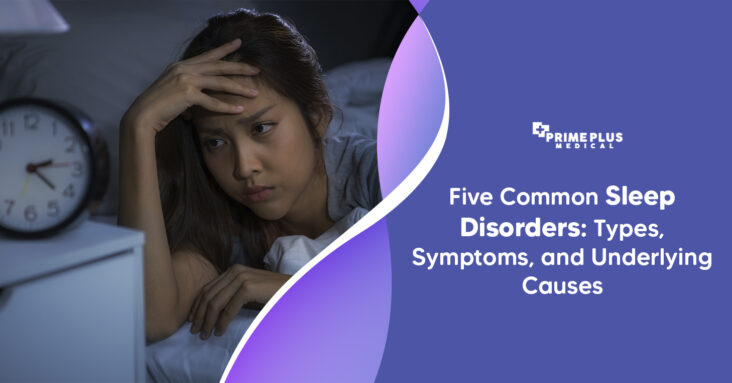Five Common Sleep Disorders: Types, Symptoms, and Underlying Causes
Sleep is vital to our well-being. It is just as essential to our body as eating and drinking. Unfortunately, many of us struggle to get a good night’s sleep due to sleep disorders.
Sleep disorders can happen to everyone. And yes, that includes all of you living around us here, on the laid-back island of Bali.
In fact, according to the World Health Organization (WHO), approximately 40% of the world’s population experiences some form of sleep disturbance, affecting their quality of life and overall health.
Ignoring sleep disorders can have significant consequences on your physical and mental health. In this article, you will learn about different sleep disorders, their symptoms, and underlying causes.
Different Types of Sleep Disorders
Insomnia
Most of us are familiar with the term insomnia. It is indeed the most common sleep disorder. Insomnia is characterized by difficulty falling asleep, staying asleep, or experiencing restful sleep. Symptoms of insomnia often include fatigue, irritability, and concentration problems.
- Sleep Apnea
Sleep apnea is a sleep-related breathing disorder involving interrupted breathing, or pauses in breathing, during sleep. Understandably, this condition leads to daytime drowsiness due to interrupted sleep.
According to the National Health Service (UK), the most common type of sleep apnea is obstructive sleep apnea (OSA). It happens when the walls of the throat relax and narrow too much during sleep.
- Narcolepsy
Narcolepsy is a long-term neurological disorder affecting a person’s control of sleep and wakefulness. People with narcolepsy experience extreme daytime sleepiness and uncontrollable episodes of falling asleep during the day.
The Sleep Foundation (US) shares that people with narcolepsy are at high risk for accidents or injury. Therefore, getting treatment and making lifestyle changes is crucial.
- Restless Legs Syndrome (RLS)
Restless Legs Syndrome is a condition that causes an overwhelming urge to move the legs, often accompanied by uncomfortable sensations. Symptoms of RLS tend to worsen during rest or inactivity. Therefore, people with RLS have trouble falling asleep.
- Circadian Rhythm Disorders
Circadian rhythm disorders is a condition that disrupts the normal sleep-wake cycle. The National Heart, Lung, and Blood Institute (US) defines the condition as problems that occur when your body’s internal clock is out of sync with your environment. As a result, your body fails to know whether it is time to sleep or wake.
Read More Article Improving Your Mental Well-Being : Four Expert Tips
Causes of Sleep Disorders
Lifestyle
When it comes to lifestyle factors, poor sleep habits, irregular sleep schedules, excessive caffeine or alcohol consumption, and high levels of stress can all disrupt sleep patterns and lead to sleep disorders.
Review your habits and patterns, and once you have found the culprit, try to opt for healthier choices that allow your body to get the sleep it needs.
Underlying medical conditions
Medical conditions such as chronic pain, respiratory disorders like asthma, hormonal imbalances like thyroid disorders, and neurological conditions can also disrupt sleep patterns.
Mental health disorders
This disorders often coexist with mental health disorders like depression, PTSD, and anxiety.
Medications
Certain medications, including those for allergies, hypertension, and depression, can interfere with sleep. Substances like nicotine, alcohol, and stimulants can also disrupt sleep patterns and contribute to the development of sleep disorders.
In conclusion, sleep disorders can have significant impacts on your overall well-being and daily functioning. If you suspect you have a sleep disorder, consult your GP as soon as possible. Our English-speaking team at Prime Plus Medical in Canggu is ready to assist you 24/7.

